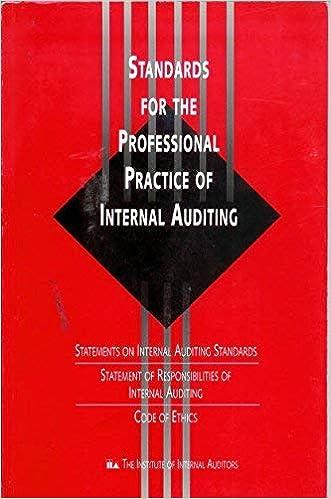Question
Petersen & Peterson Company is a 6-year-old company founded by Jackson Peterson and Mary Peterson to exploit metamaterial plasmonic technology to develop and manufacture miniature
Petersen & Peterson Company is a 6-year-old company founded by Jackson Peterson and Mary Peterson to exploit metamaterial plasmonic technology to develop and manufacture miniature microwave frequency directional transmitters and receivers for use in mobile Internet and communications applications. The technology, although highly advanced, is relatively inexpensive to implement and their patented manufacturing techniques require little capital in comparison to many electronic fabrication ventures. Because of the low capital requirement, Jackson and Mary have been able to avoid issuing new stock and thus own all of the shares. Because of the explosion in demand for its mobile Internet applications, the company must now access outside equity capital to fund its growth and the couples have decided to take the company public. Until now, Jackson and Mary have paid themselves reasonable salaries but routinely reinvested all after-tax earnings in the firm, so dividend policy has not been an issue.
However, before talking with potential outside investors, they must decide on a dividend policy. Your supervisor at the consulting firm Ernst Young & Associates, which has been retained to help the company prepare for its initial public offering, has asked you to make a presentation to Jackson and Mary in which you plan to review the theories of dividend policy and discuss capital structure decisions.
- Explain to the Petersons the term a distribution policy?
- Describe the following theories of dividend payout preferences and how they will affect dividend policy of Peterson & Peterson Company:
- dividend irrelevance theory
- bird-in-the-hand theory
- tax effect theory, and
- information content hypothesis (signaling theory)
Peterson & Peterson Company plans to undertake a massive capital expansion project next year that will require $10 million investment. The companys target capital structure consists of 60% debt and 40% equity. Peterson has 1million shares of stock outstanding. If net income next year is
$6 million and the company follows a residual distribution policy with all distributions as dividends, determine the following:
- the companys dividend per share for next year
- the companys forecasted dividend payout ratio
- the amount of equity financing and long-term debt needed to finance the project
- What are the advantages and disadvantages of the companys residual policy? (Hint: do not neglect signaling and clientele effects.)
- Peterson Company plans to repurchase some of its own outstanding stock in the future if it sees that its stock price is undervalued in the market and more specially to reorganize its capital structure. Identify three advantages and three disadvantages of stock repurchases.
Boehm Corporation produces satellite earth stations that sell for $150,000 each. The firms fixed costs are $1.5 million, 20 earth stations are produced and sold each year. Profits are $400,000 and the firms assets (all equity financed) are $5million. Due to technological advances in the industry the firm estimates that it can change its production process by adding $10 million to assets and
$500,000 to fixed operating costs. This change will reduce variable costs per unit by $5,000 and increase output by 30 units. However, the sales price on all units must be lowered to $140,000 to permit sales of the additional units. Boehm Corporation has tax carryforwards that render its tax rate zero, its cost of equity is 18% and it has no debt in its capital structure. Thus, the companys profit is equal to earnings before interest and taxes (EBIT)
- Determine the companys variable cost per unit and break-even quantity under the initial plan.
- Determine the companys variable cost per unit and break-even quantity under the proposed plan.
- Would the new proposed plan expose the firm to more or less business risk than the initial plan. Show your work.
Step by Step Solution
There are 3 Steps involved in it
Step: 1

Get Instant Access to Expert-Tailored Solutions
See step-by-step solutions with expert insights and AI powered tools for academic success
Step: 2

Step: 3

Ace Your Homework with AI
Get the answers you need in no time with our AI-driven, step-by-step assistance
Get Started


